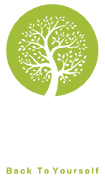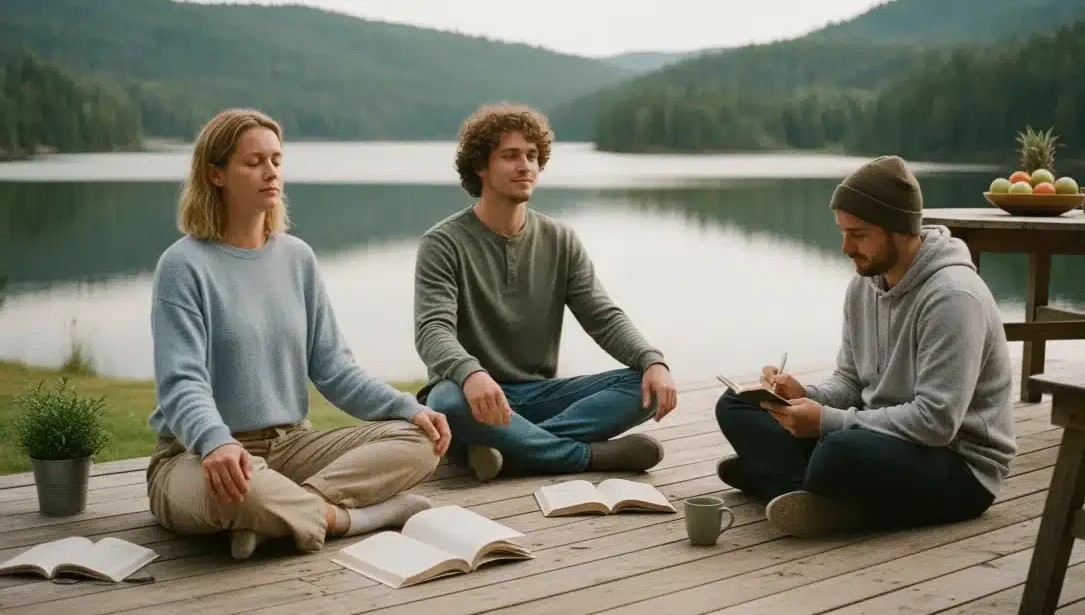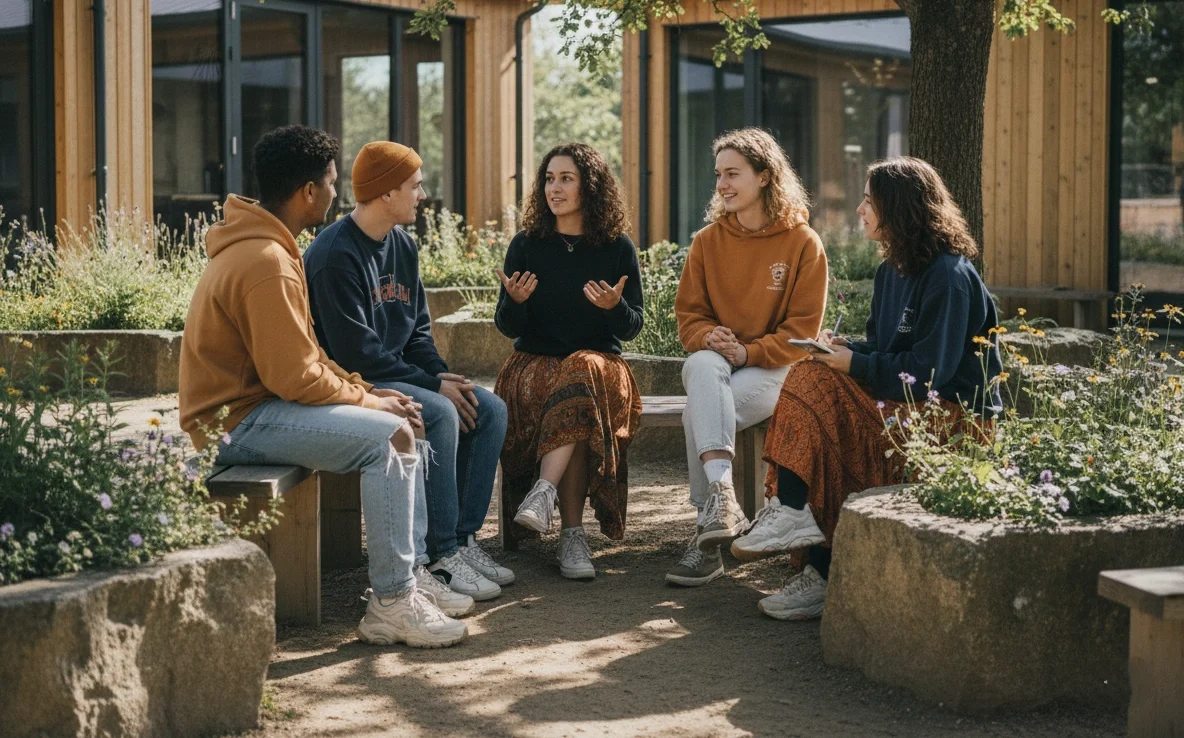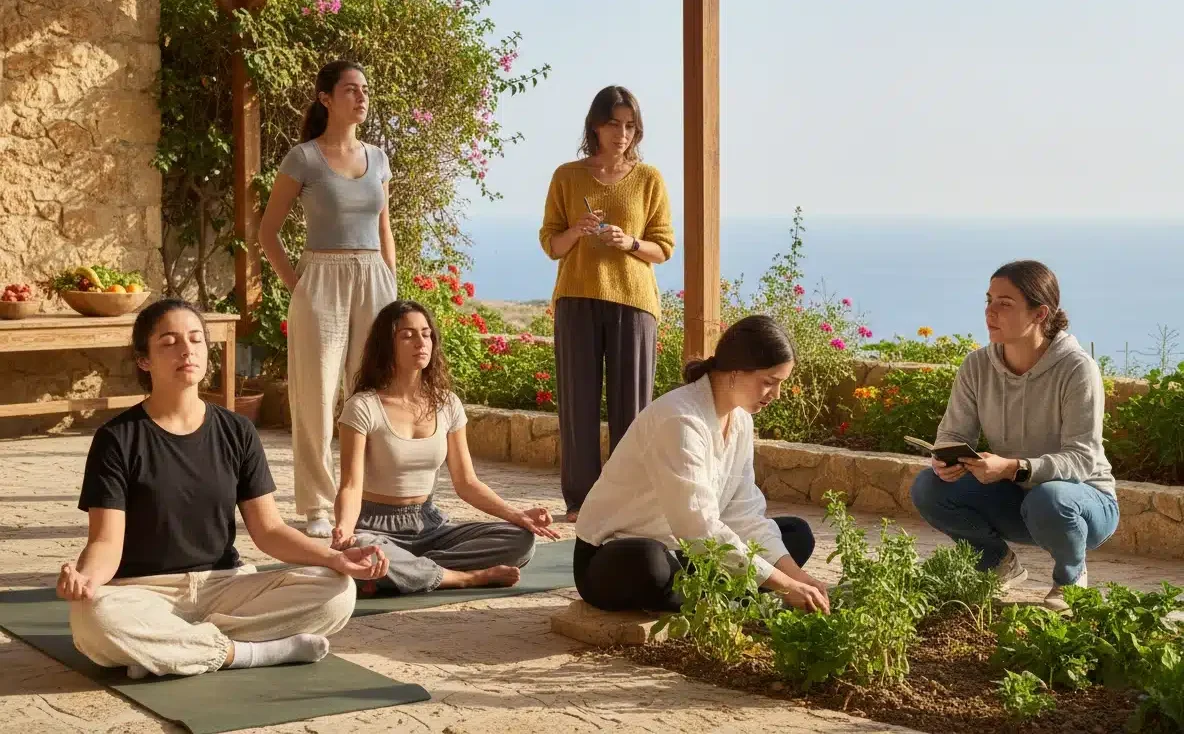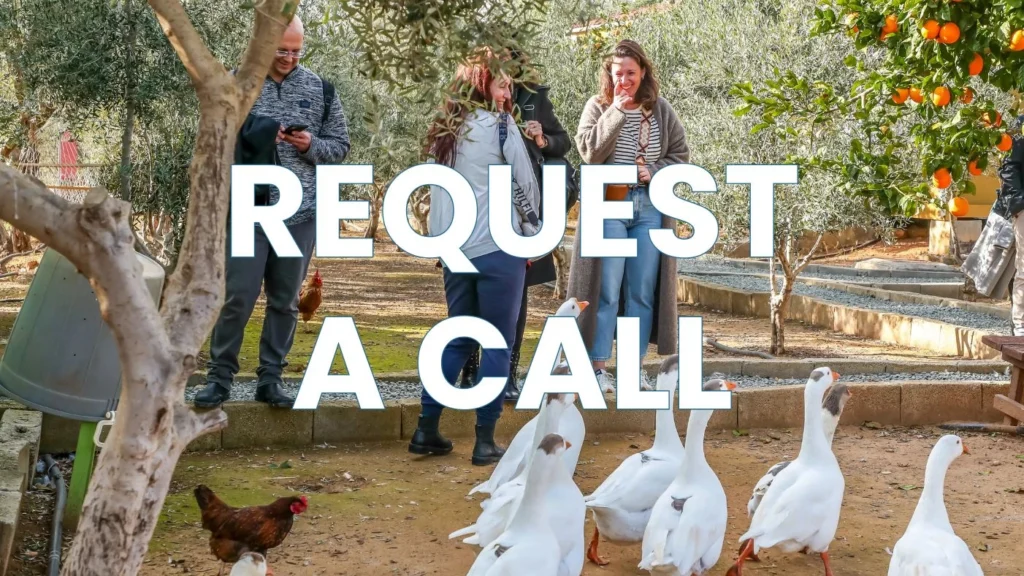Empowering Independence: Preparing Young Adults for Life Beyond Treatment
05 min read

Healing Is Only the Beginning
Recovery doesn’t end when treatment does — it begins there.
At Holina Village Cyprus, we understand that long-term success means more than managing symptoms or finishing therapy. It’s about preparing young people to live — fully, confidently, and independently.
Our goal is simple: to help each student leave not just well, but ready — equipped with the emotional, practical, and relational tools to build a meaningful life.
“We don’t just teach recovery. We teach readiness — for life, for responsibility, for freedom.”
— Program Director, Holina Village Cyprus
The Challenge of Transition
For many young adults, leaving treatment can feel both exciting and intimidating.
After weeks or months in a structured, supportive environment, the idea of independence can trigger anxiety: What if I can’t handle it? What if I fall back?
That’s why at Holina Village, independence isn’t a leap — it’s a gradual, supported transition.
We prepare our students to step into life with self-awareness, accountability, and purpose, not pressure.
Our approach blends therapy, education, and practical life skills to make independence feel empowering rather than overwhelming.
The Philosophy: Independence Through Connection
True independence isn’t about doing everything alone.
It’s about knowing how to connect — to yourself, to others, and to the world — while maintaining balance and self-responsibility.
Holina Village teaches that independence grows from self-knowledge and emotional regulation.
When young adults understand their feelings, triggers, and strengths, they can navigate challenges with resilience instead of avoidance.
This emotional maturity becomes the foundation for healthy autonomy.
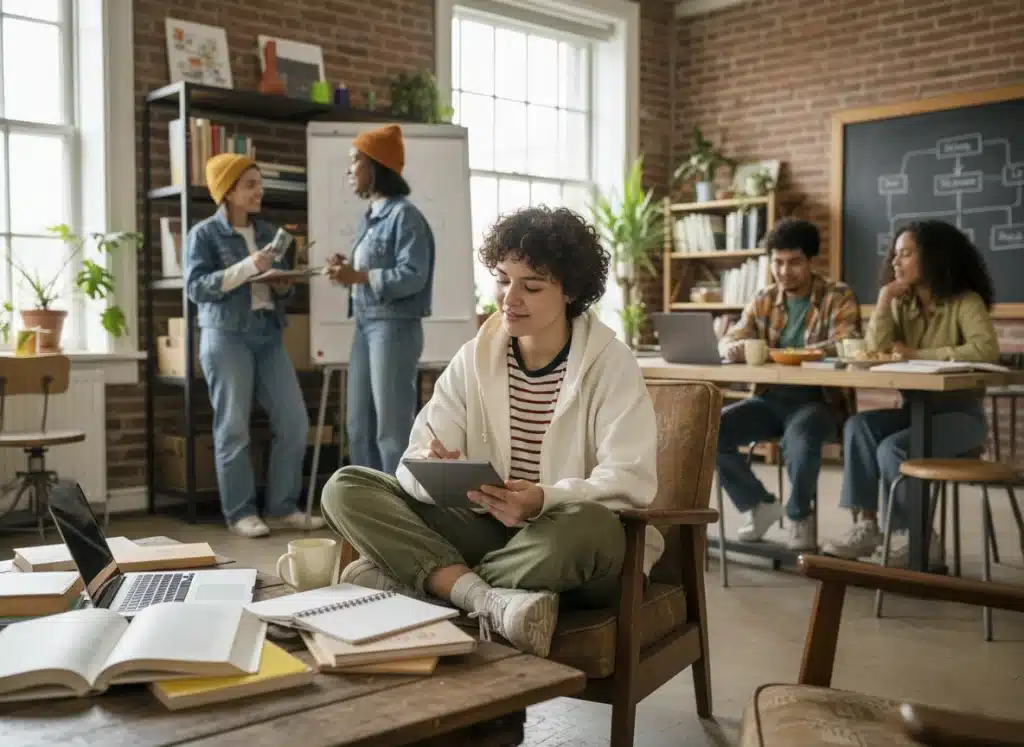
Practical Life Skills Training
Independence starts with small, consistent steps.
Through structured workshops and real-life practice, students at Holina Village learn essential life skills that many have missed during years of struggle.
Core Skills Include:
Time and money management
Nutrition and cooking
Self-care and hygiene routines
Conflict resolution and communication
Goal setting and accountability
Career and academic planning
These skills are not just taught — they’re lived daily within the community.
Each responsibility, from cleaning to budgeting, becomes part of the rhythm of recovery.
Education and Vocational Readiness
Many young people arrive at Holina after disrupted schooling or failed transitions to higher education.
We help them rebuild confidence in their ability to learn and achieve.
Through our partnership with UCLan Cyprus, students can continue formal education while receiving therapeutic support.
For others, we offer vocational guidance and career planning — helping them discover practical paths aligned with their interests and abilities.
The goal isn’t to push — it’s to inspire readiness through clarity and direction.
“I used to think I wasn’t capable of much. Holina helped me see I just needed support, not saving.”
— Student, 19
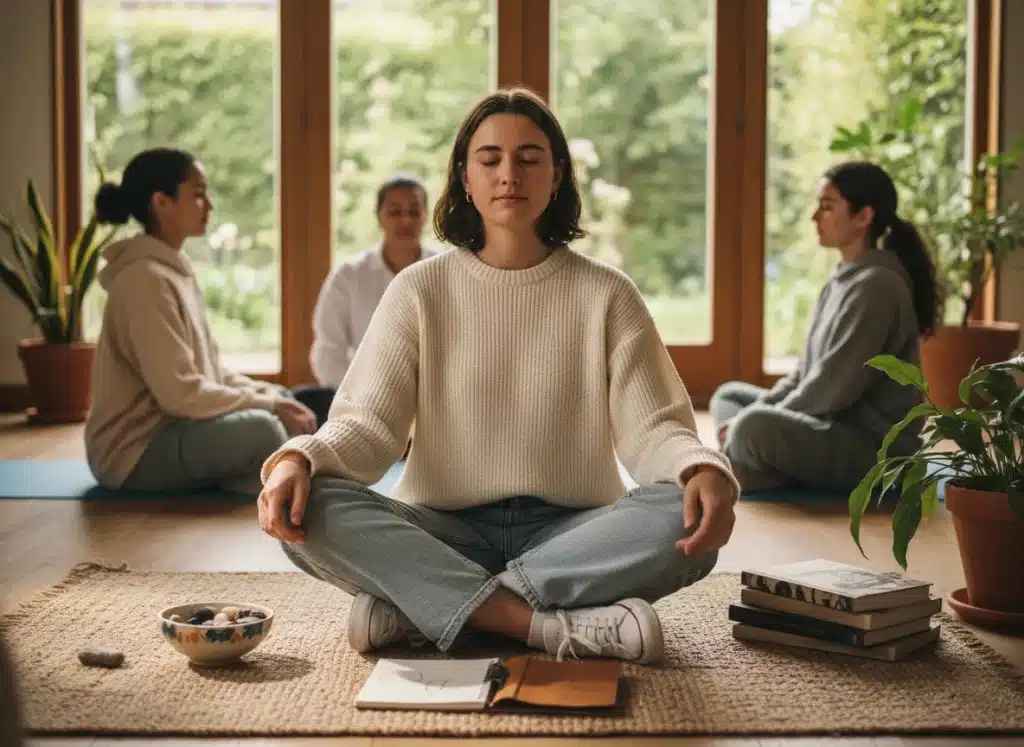
Building Emotional Independence
Emotional independence is at the heart of sustainable recovery.
At Holina Village, young adults learn to manage their emotions without relying on substances, distractions, or external validation.
Through therapy and mindfulness, they develop:
Emotional awareness
Self-regulation
Healthy coping mechanisms
The ability to seek help appropriately
These internal tools empower them to handle real-life stress, relationships, and change with balance and confidence.
The Role of Responsibility
Responsibility is freedom in action.
At Holina, we give students structured opportunities to take ownership of their time, tasks, and choices.
This might mean leading a community project, managing personal schedules, or helping newer residents adjust.
Each act of responsibility builds confidence — teaching that independence isn’t about perfection, but about showing up with integrity.
“They trusted me with small responsibilities until I realized I could trust myself.”
— Graduate, 21
Healthy Boundaries and Relationships
Independence also means knowing how to navigate relationships — at home, school, or work.
Many of our students come from family systems where boundaries were blurred or broken.
We teach how to set healthy limits, communicate needs, and maintain self-respect while respecting others.
This relational maturity prepares them for balanced connections in life after treatment — friendships, partnerships, and family relationships that are supportive, not stressful.
Community Integration and Belonging
As part of preparing for independence, students at Holina Village gradually re-engage with the outside world through community involvement.
This might include volunteering, social service, creative projects, or educational placements.
These experiences allow young adults to apply what they’ve learned in real settings — testing confidence, resilience, and social skills in supportive steps.
Belonging doesn’t disappear after Holina — it expands.
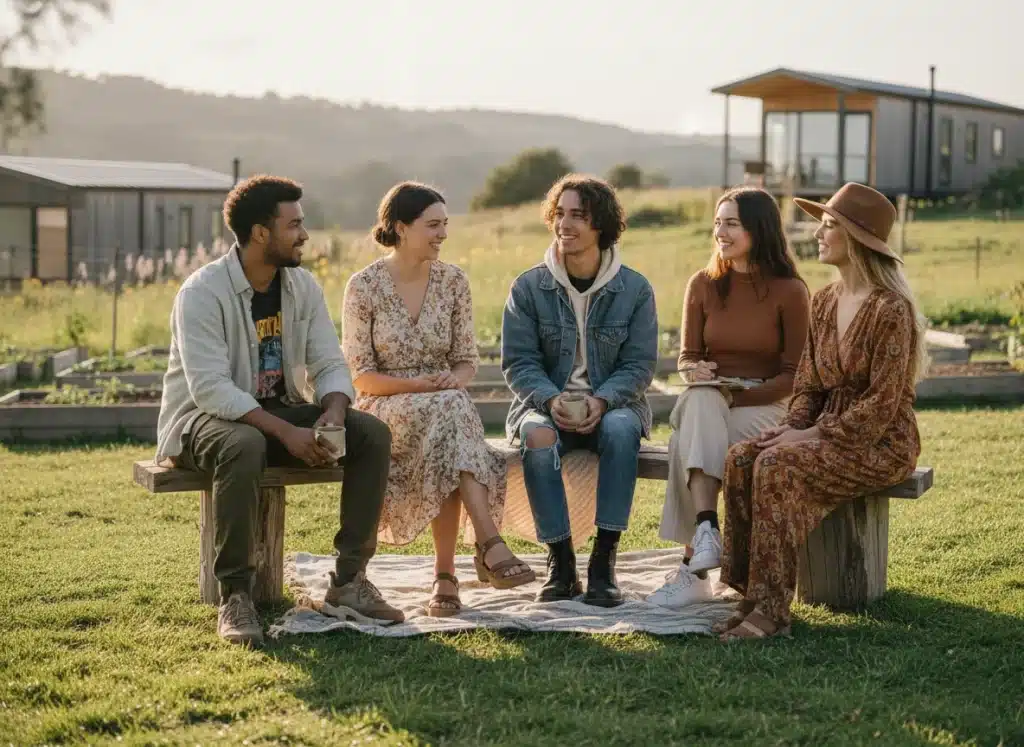
Relapse Prevention and Long-Term Support
Leaving treatment doesn’t mean leaving support.
Holina Village provides a structured aftercare program that includes ongoing therapy, mentorship, and check-ins to help graduates maintain stability.
Our team stays connected long after discharge, offering continued guidance and accountability through virtual sessions or community visits.
We remind every young person that independence doesn’t mean isolation — it means supported freedom.
Parents and Families in the Transition Process
Parents often need support as much as their children do.
Letting go while staying connected can be one of the hardest parts of recovery.
Holina’s family program teaches parents how to encourage autonomy without overprotection — shifting from control to trust.
Families learn to communicate openly, celebrate progress, and offer accountability in healthy ways.
Together, these shifts turn independence into a shared achievement rather than a source of fear.
“We didn’t lose our son to independence — we gained a confident young man.”
— Parent, UK
The Transformation: From Dependence to Self-Trust
The ultimate goal of recovery is self-trust — the quiet confidence that says, “I can handle life as it comes.”
At Holina Village, independence is not rushed or forced. It’s nurtured through care, consistency, and real-world readiness.
Young adults leave with more than coping tools — they leave with purpose, resilience, and self-belief.
They step into the world not just healed, but whole.
“Holina didn’t send me back into life — they walked me back into it.”
— Graduate, 20
FAQs About Preparing for Independence at Holina Village
Q1: How long is the independence preparation phase?
It varies by individual. Some begin transitional programs within a few months, others stay longer for additional readiness support.
Q2: What if my child isn’t ready to leave treatment?
We never rush transitions. Every step is based on emotional stability, self-regulation, and readiness assessments.
Q3: Is there career or education guidance available?
Yes. We provide vocational coaching, study planning, and partnerships with educational institutions.
Q4: How do you prevent relapse after transition?
Through aftercare, mentorship, and family support — ensuring accountability and continued structure.
Q5: Can families stay involved after graduation?
Absolutely. Family therapy and communication sessions continue as needed to support long-term connection.
Conclusion: Freedom Rooted in Support
At Holina Village Cyprus, independence is not a destination — it’s a process of becoming.
Through structure, compassion, and practical life skills, young adults learn how to care for themselves, make healthy choices, and move confidently into their future.
They leave not dependent on others, but connected to themselves — ready to live with purpose, balance, and hope.
Begin your child’s next chapter with Holina Village Cyprus today.
Where independence is built through support — and freedom begins with trust.
